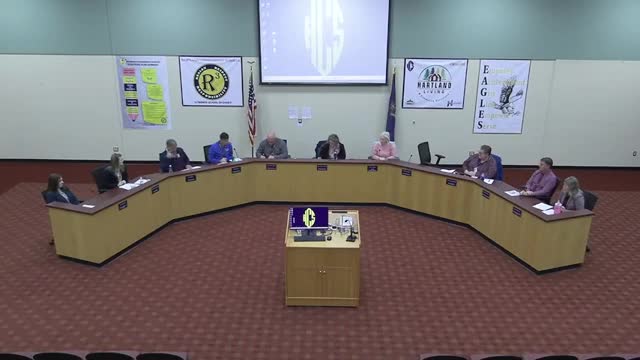Hartland district plans lead-reducing filters after state’s 2024 ‘Filter First’ requirement
Get AI-powered insights, summaries, and transcripts
Subscribe
Summary
School facilities staff told the Hartland Consolidated Schools board the district will add bottle-filling stations, test fixtures annually and use a $187,500 grant to comply with October 2024 state legislation requiring lead-reducing filters on drinking water sources.
The Hartland Consolidated Schools district plans to install lead-reducing filters at drinking water sources across its buildings to meet state legislation issued in October 2024, district facilities staff told the Board of Education on Oct. 20.
District facilities staff said the new requirement — commonly called the Filter First legislation — will require one bottle-filling station per 100 building occupants, annual testing of filtered sites and signage at non‑filtered fixtures. "We already comply with our noncommunity requirements because we do have our own well system," a facilities presenter said, adding that new filtration rules require retrofit or replacement of some existing bottle fillers.
The board heard that the district applied for and received grant funding of $187,500 earlier in the year to cover installation costs and is putting the remaining work out to bid. The presenter warned that if bids exceed the grant, the district would use general‑fund dollars to finish the project. Maintenance staff, the presenter said, can perform ongoing filter replacement in‑house; individual replacement cartridges were estimated around $40–$50 each.
Why this matters: the Filter First legislation applies statewide and creates an ongoing testing and reporting obligation for school districts and child‑care providers. Board members asked about who will run the annual sampling, long‑term costs, and the palatability of filtered water for students.
Board discussion and clarifications: The facilities presenter said testing need not begin until the installations are complete (targeted June–July 2026), but that the state health department is still determining how sample processing will be coordinated for all districts. He said some previously installed bottle fillers do not meet the new compliance requirements because of filter location or the absence of a filter; those units will be retrofitted where possible or replaced.
On operations and cost, the presenter said annual testing fees could be higher than expected because there are relatively few certified testing labs in the state and those labs may be inundated with samples once districts begin routine testing. On maintenance, he said the district’s maintenance staff will replace filters and track replacements through the district work‑order system.
Board members recommended the facilities staff return with estimated annual maintenance and testing costs when bid results are available. The presenter said bids are due after the public solicitation and that final cost estimates will follow.
Provenance: The board discussion about the Filter First legislation, grant funding and maintenance began when facilities staff introduced the topic and ran through requirements, grant amount and testing cadence (transcript block starting at 4261.035) and concluded with board questions about costs and maintenance responsibilities (transcript block starting at 4715.3003).
